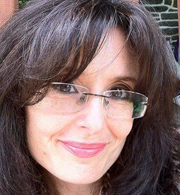
I had so many ideas for this column. But every time I started to write, the sentences would fall flat.
Fortunately, as I sat at the keyboard, inspiration came to me in the most natural way. I was sitting at the same desk I'd been at on Sept. 11, 2001 as the second plane hit the World Trade Center.
It was the same keyboard I'd used to write an email to my brother Michael in Manhattan after the family couldn't get through to him on the phone.
It was the same chair I'd collapsed into when NPR announced the crash of Flight 93 in Shanksville, taking with it the most valiant Americans since the men at Pearl Harbor were murdered on a quiet Sunday morning almost 60 years before.
And I looked through the same window onto South Broad Street and saw the same brilliant sunshine streaming through the same majestic old tree, with the same branches dispersing flashes of gold through the morning air.
This was the story. This is the story.
I've lived almost a quarter century since then. My hair is grayer, and I have a few more wrinkles, but not that many. The Italian DNA is more powerful than the Irish. Apologies to my father.
The fact I'm still here, when thousands are no longer among us, doesn't mean the world didn't end. That world did. The one we now inhabit is not the same, regardless of the superficial signs and attributes of normality. I said that in a social media post on the actual anniversary, asking my friend to remember the way we were "before," and try and get back to that type of person. I was actually referring to the people that we were on Sept. 12, the day after we woke up and realized that the smoke and the carnage hadn't been a horrible nightmare. That was our new reality.
And the way we approached it was an example of the best that we were, and the best that we could still be if we stopped hating each other as much as we tend to do. Camus famously wrote this phrase which I have to reproduce in French because it simply falls on the ears with more grace: Au milieu de l'hiver, j'ai découvert en moi un invincible été (In the midst of winter, I discovered within myself an invincible summer).
On Sept. 12, 2001, I saw that principle manifest itself in my neighbors. I saw people jumping on trains at Suburban Station, headed to 30th Street where they would then catch an Amtrak to New York, to help. They didn't have any other plans than to simply help.
I listened to the recordings from the people on Flight 93, calls home to loved ones, and then the struggle as they overpowered the hijackers headed towards the Capitol. They sacrificed their lives, for us.
I remember seeing the figure of Father Mychal Judge, chaplain of the New York Fire Department, who was killed while ministering to the injured and dying that morning, carried by the men who loved him.
And I remember that we became Americans, not Italian Americans or Irish Americans or African Americans or Indigenous or member of the LGBTQ community. In fact, Father Mychal was gay. No one cared about his sexual orientation. They cared about his humanity, which transcended it all.
We are now a broken nation, with some people calling other people traitors because they support Donald Trump, and other people calling their neighbors Marxists because they support Harris.
And there are people quibbling about whether allowing a child to suffocate to death after a botched abortion is "killing" a child or a candidate's way of fudging the truth.
This is far from the America I experienced on Sept. 12, 2001. It is an America that I reject. And since, like Camus, I know that there is an invincible summer somewhere within us, I hope to emerge from this winter, and find it again.
(COMMENT, BELOW)
Christine M. Flowers is a lawyer and columnist.


 Contact The Editor
Contact The Editor
 Articles By This Author
Articles By This Author